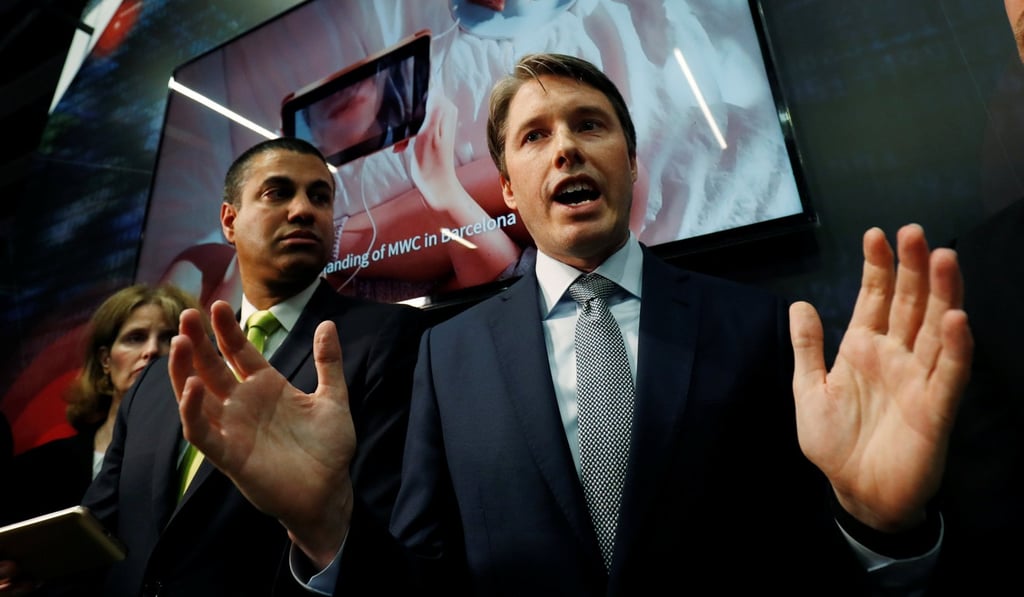Donald Trump won’t use Huawei ban as trade war bargaining chip, US official Robert Strayer says
- ‘It’s not part of the negotiation,’ says the deputy assistant secretary of state for cyber policies
- The UK, France and Germany look increasingly unlikely to impose a blanket ban on the Chinese telecoms giant, according to diplomatic sources

A senior US State Department official for cyber policies said US President Donald Trump would not relax the ban on Huawei Technologies in exchange for a better trade deal with China.
The US has been “making progress” in private discussions with European officials over stricter rules for next generation 5G mobile technology, Robert Strayer, deputy assistant secretary of state for cyber and international communications and information policy, told the South China Morning Post on Friday.
His remarks came a day after the Chinese tech giant’s CEO Ren Zhengfei said Huawei would be willing to exclusively license its 5G technology to a US company to create a level playing field for competitors.
“Recently President Trump has said that he will not give business to Huawei in the US. It’s not part of the negotiation,” Strayer said in an interview in Brussels.
Asked if that would be the case in all circumstances, he replied: “Correct.”
